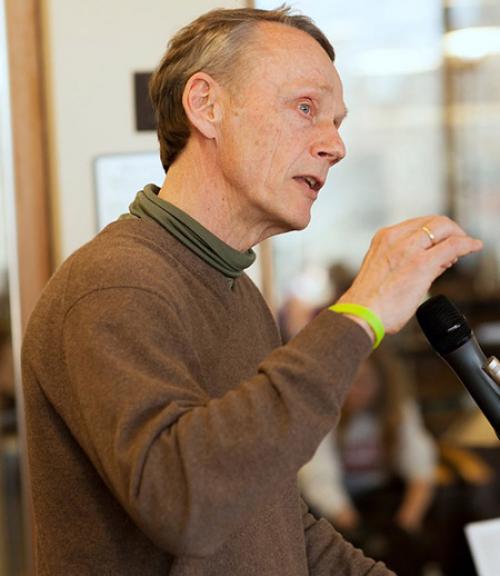Mainstream international relations continues to assume that the world is governed by calculable risk based on estimates of power, despite repeatedly being surprised by unexpected change. In the new book “Protean Power: Exploring the Uncertain and Unexpected in World Politics,” co-editors Peter Katzenstein and Lucia A. Seybert, Ph.D. ’12, argue for a new approach to international relations that takes into account “protean power.”
Katzenstein and Seybert define protean power as “the effect of improvisational and innovative responses to uncertainty.” As the researchers explain: “Unexpected changes or shocks are not exogenous to how power relations unfold, but to how our theories depict them. ... Protean power keeps us from assuming away the unknown.”
As an example, Katzenstein points to the Arab Spring. Those involved had a goal but not a plan to achieve it. Instead, someone who had been angry for years got so fed up he set himself on fire in North Africa. “That person committing suicide didn’t say, ‘I’m going to start a revolution in North Africa.’ But it was a rational response to police harassment which had gone on for years. Protean power is the ability and the adaptability to innovate and improvise in uncertain circumstances,” said Katzenstein, the Walter S. Carpenter Jr. Professor of International Studies in the Department of Government in the College of Arts and Sciences.
In contrast, Katzenstein said, “control power” is based on assessments of risk, and seeks to control the environment and bend others to your will to achieve your objectives. “Risk-based models and control power assume you are playing the odds. They rely on prior beliefs to make decisions based on implicit probabilities,” Katzenstein said. “They have written uncertainty out of the world.”
But the choice should not be one or the other, Katzenstein said. He advocates for incorporating protean power into a more complex analysis of power dynamics to help account for unforeseen changes in world politics.
In developing the theory of protean power, Katzenstein turned to film and cultural studies for insight, where the notion of power is much more fluid. “In my discipline power is about attributes: I am strong, I am smart, I am beautiful, I have resources,” he said. “But in fact, the best theory says that while the resource and means are important, it’s really about the relationship.”
It took Katzenstein and Seybert four years and more than 100 drafts of the three theory chapters to refine their understanding of protean power. “Our argument is that there are two kinds of power, the power of risk or control and the power of unpredictability. Risk-based thinking expresses a desire for control and a preference for regular and incremental change that lead us to rely on control power. But we live in a world marked by ‘radical uncertainty,’ and human interactions are too complex to anticipate unknown outcomes correctly. A world of manageable risk is sheer fantasy in the fact of unknowable outcomes,” said Katzenstein.
“Protean Power” uses 12 real-world case studies to examine how the dynamics of protean and control power can be tracked in the relations among different state and nonstate actors, operating in diverse sites, local to global, in times of relative normalcy and moments of crisis. All but two of the case study contributors are Katzenstein’s former students: Chris Reus-Smit, Ph.D. ’95, wrote about revolutions; Philip Ayoub, Ph.D. ’13, on LGBT rights; Noelle Bridgen, Ph.D. ’13, and Peter Andreas, Ph.D. ’98 on power collisions across the U.S.-Mexico border; Rawi Abdelal, Ph.D. ’99, on hydrocarbons; Stephen Nelson, Ph.D. ’09, on finance; Barak Mendelsohn, Ph.D. ’06, on terrorism; and Jennifer Erickson, Ph.D. ’09, on arms control.
This is Katzenstein’s second edited book with his former students. Such books are “very intense learning experiences and are incredibly difficult to pull off,” he said, adding that there’s a reason he works with Cornell alumni: “I could ask of them what I couldn’t ask of others. It was truly collective learning of the best kind.”
This article also appeared in the Cornell Chronicle.




